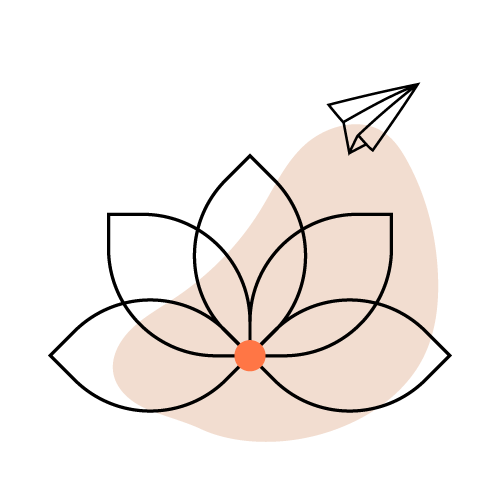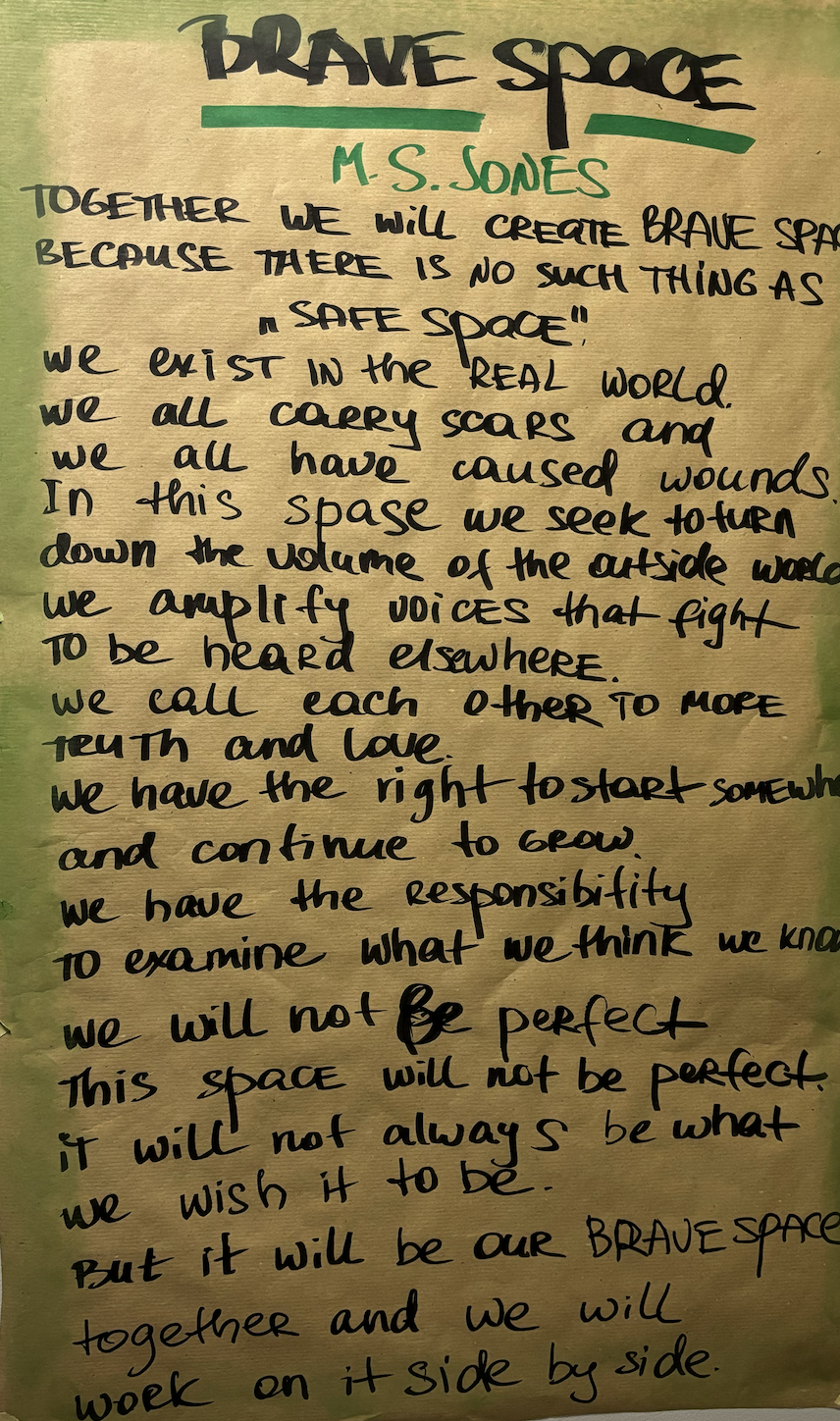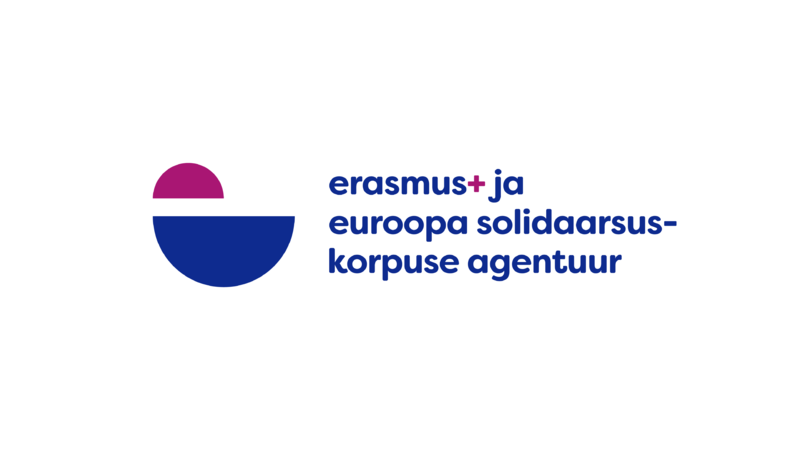
Erasmus+, KA 1 Mobility for youth workers within Erasmus + Accreditation, 2023-1-EE01-KA151-YOU-000132435
NurishNest - creating supportive and nourishing spaces for young individuals
26 February - 04 March 2024 | Otepää, Estonia
The main aim of the "NurishNest" training program is to enhance the capacity of youth workers in creating peaceful, inclusive, and nourishing environments through trauma-informed approaches, mindfulness techniques, and embodiment practices. The training integrates experiential learning and study visits, aiming to deepen understanding of diverse experiences and promote holistic well-being for all young individuals, especially those from marginalized groups.
Throughout the 6-day program, participants were engaged in a combination of interactive workshops, discussions, practical exercises, and reflective activities. The training provided a holistic approach to empower youth workers with the knowledge, skills, and confidence needed to promote peacemaking, embodiment, trauma awareness, and non-violent communication in their work with young people.
Learning outcomes:
Throughout the 6-day program, participants were engaged in a combination of interactive workshops, discussions, practical exercises, and reflective activities. The training provided a holistic approach to empower youth workers with the knowledge, skills, and confidence needed to promote peacemaking, embodiment, trauma awareness, and non-violent communication in their work with young people.
Learning outcomes:
- Cultivating Nourishing Spaces: Equip participants with skills to create and sustain nurturing environments that support the growth and well-being of young people.
- Enhanced Empathy & Understanding: Broaden perspectives on diverse experiences, fostering deep empathy and understanding.
- Mindfulness & Embodiment Mastery: Develop proficiency in mindfulness and embodiment practices for personal and professional resilience.
- Inclusivity & Practical Skills: Learn to build inclusive, trauma-informed spaces for diverse youth, including those from marginalized backgrounds.
- Effective Communication for Peacebuilding: Enhance communication skills for peaceful dialogue and conflict resolution.
- Holistic Well-being Approaches: Apply holistic strategies to promote mental, emotional, and physical well-being in youth work.
Trainers
- Julia DemEstoniaYouth worker (level 6, Estonian National qualification), adult educator (level 7, Estonian National qualification), mindfulness instructor, embodiment practitioner.
- Vira GruzovaUkraine / BelgiumMindfulness mentor, certificated by Mindspot (Ukraine), project manager, communication consultant, trainer for adults and active citizen.
- Kateryna PopkovaEstoniaA certified Embodiment facilitator and trauma-informed practitioner, Kateryna wears many hats, including that of a life coach, group leader, and transformational coach
Project results
In this article, we share our vision of nurturing spaces explored during the NurishNest training program. Emphasizing a holistic approach, we delve into the importance of self-care, mindfulness, and empathy in fostering environments where young individuals feel safe, supported, and empowered to grow. Through trauma-informed practices and inclusive strategies, we aim to cultivate spaces where every young person can thrive and realize their potential.
Creating nurturing learning environments is paramount in youth work, especially for those from marginalized backgrounds. The NurishNest training program provided a comprehensive framework to empower youth workers in fostering spaces that support the holistic development and well-being of young individuals. Through the integration of trauma-informed approaches, mindfulness techniques, and embodiment practices, participants are equipped with the tools to cultivate environments where young people feel safe, valued, and empowered to grow.
The Foundation: Self-Care and Mindfulness
Central to building nurturing learning environments is the recognition that the youth workers themselves are the primary tools. Mindfulness and embodiment practices serve as foundational elements, enabling participants to establish a connection with themselves, which in turn facilitates meaningful connections with their students. By nurturing their own well-being, youth workers model self-care and create a space conducive to openness and trust.
The Foundation: Self-Care and Mindfulness
Central to building nurturing learning environments is the recognition that the youth workers themselves are the primary tools. Mindfulness and embodiment practices serve as foundational elements, enabling participants to establish a connection with themselves, which in turn facilitates meaningful connections with their students. By nurturing their own well-being, youth workers model self-care and create a space conducive to openness and trust.

Empathy and Understanding
Enhanced empathy is a cornerstone of effective youth work. Through mindfulness practices, participants broaden their perspectives and develop a deep understanding of diverse experiences. This heightened empathy fosters an environment of compassion and acceptance, where young people feel heard, understood, and supported.
Safe and Inclusive Spaces
Nurturing learning environments are synonymous with safe and inclusive spaces. Participants learn to create environments where young individuals feel comfortable stepping out of their comfort zones and expressing themselves authentically. Mindfulness and embodiment practices play a crucial role in cultivating this atmosphere of safety and acceptance.
Trauma-Informed Approaches
Trauma-sensitive youth work is integral to supporting the well-being of young individuals who have experienced trauma. By realizing, recognizing, responding, and resisting judgmental responses to trauma, youth workers can create environments that facilitate healing and growth. Key practices include establishing routines, incorporating rituals, building positive relationships, and providing regulation strategies to help young people cope with their emotions.
Good Practices for Nurturing Learning Environments
Routines: Consistent and friendly processes provide stability and predictability for young individuals.
Rituals: Designing ceremonies and celebrations fosters a sense of belonging and significance.
Relationships: Positive relationships built on trust and respect are fundamental to nurturing environments.
Regulation: Equipping young people with strategies to manage and regulate their emotions promotes resilience and well-being.
In conclusion, cultivating nurturing learning environments requires a multifaceted approach that integrates mindfulness, empathy, trauma-informed practices, and inclusive strategies. Through the NurishNest training program, youth workers are empowered to create spaces where all young individuals can thrive, grow, and realize their full potential.
Enhanced empathy is a cornerstone of effective youth work. Through mindfulness practices, participants broaden their perspectives and develop a deep understanding of diverse experiences. This heightened empathy fosters an environment of compassion and acceptance, where young people feel heard, understood, and supported.
Safe and Inclusive Spaces
Nurturing learning environments are synonymous with safe and inclusive spaces. Participants learn to create environments where young individuals feel comfortable stepping out of their comfort zones and expressing themselves authentically. Mindfulness and embodiment practices play a crucial role in cultivating this atmosphere of safety and acceptance.
Trauma-Informed Approaches
Trauma-sensitive youth work is integral to supporting the well-being of young individuals who have experienced trauma. By realizing, recognizing, responding, and resisting judgmental responses to trauma, youth workers can create environments that facilitate healing and growth. Key practices include establishing routines, incorporating rituals, building positive relationships, and providing regulation strategies to help young people cope with their emotions.
Good Practices for Nurturing Learning Environments
Routines: Consistent and friendly processes provide stability and predictability for young individuals.
Rituals: Designing ceremonies and celebrations fosters a sense of belonging and significance.
Relationships: Positive relationships built on trust and respect are fundamental to nurturing environments.
Regulation: Equipping young people with strategies to manage and regulate their emotions promotes resilience and well-being.
In conclusion, cultivating nurturing learning environments requires a multifaceted approach that integrates mindfulness, empathy, trauma-informed practices, and inclusive strategies. Through the NurishNest training program, youth workers are empowered to create spaces where all young individuals can thrive, grow, and realize their full potential.
Materials used within the training
Project supported




